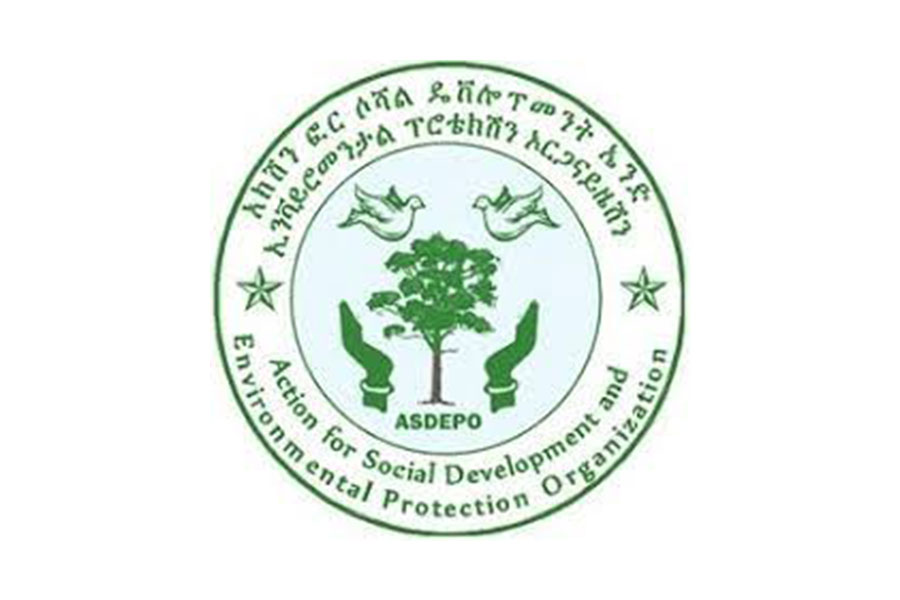
Fortune News | May 05,2020
Feb 22 , 2020.
By the day, Ethiopians are inching closer to national elections on federal and regional levels that are scheduled for August this year. It embodies both hope and promise as well as fear and uncertainty. So much will be at stake, making this year a consequential threshold. Come August, and the elections will be less battlegrounds for power politics as they will most likely be a referendum on the Ethiopian state.
Concern over emerging tensions between contending political parties may be growing. However, political parties are entering into the electoral race with a backdrop of encompassing agreement to commit themselves to a set of rules comprising do`s and do nots.
Representatives of political parties gathered at Hilton Addis Hotel on March 14, 2019, and signed a document that holds them to a higher standard of political conduct. No doubt it was a historical moment: a good day for Ethiopia`s politics. Each signing overseen by Birtukan Mideksa, head of the National Electoral Board of Ethiopia (NEBE), even the arduous process of deliberation did not seem to deter the politicians from appearing to be in good spirits.
In that rare show of political goodwill, 108 parties became signatories to a document that sets rules and guidelines on their operations and political activities. The incumbent EPRDF stood alongside many, including those who returned from exile and the armed rebellion, to honour the document that incorporates significant commitments by all sides.
The main trade-offs were for the political opposition to recognise the Constitution and the constitutional order while denouncing violence to advance political agendas. The incumbent agreed not to entangle its party machinery with that of the state and not to deploy state resources in the service of a partisan agenda.
The first of its kind, despite earlier attempts that nonetheless lacked inclusivity, the document contained 20 articles and three chapters that set rules on the conduct of parties as they attempt to gain constituencies and win seats in regional, local and federal councils.
The document also established a council made of all the signatories, which would have a different chair, vice-chair and secretariat every six months and meets every quarter of a year. A committee would be set up to investigate allegations whenever there are believed to be violations of the code of conduct by a party, or parties. If found guilty, the party or parties would be named and shamed before the public. Repeat offenders may be kicked out of the council.
The signing of the code of conduct was no small feat considering the lack of effort to ensure inclusivity by the incumbents and the opposition’s historical distrust of those in power. It was a concession on the part of the opposition parties to recognise the legitimacy of the state by promising to abide by the current constitutional order. It was also an early triumph for the Electoral Board in ensuring that the upcoming general elections would be as credible as the situation permits.
That was the assumption at least.
A year after the signing ceremony, the code of conduct has been all but forgotten. Not a peep has been heard from the council nor have any articles been invoked to keep parties accountable, as old habits continue to provide the rules of the game. In the face of an increasingly uglier power contestation, which is claiming lives and presenting an existential threat to the country, a document that could have been used to regulate the poor political conduct of parties remains unexploited.
The political space is crowded with recriminations and counter-recriminations. Most major opposition political parties stand accused of perpetrating violence. At the same time, the incumbent is criticised every other week or month for lacking transparency, using state resources for political gain and allegedly committing human and political rights’ abuses.
In the past few months, both the National Movement of Amhara (NAMA) and the Oromo Liberation Front (OLF) have accused the government of arresting their members and officials. They both lament ethnically-charged prosecution and intimidation by the state. But neither has brought the matter for investigation over to the council.
The council has also stayed silent in the face of the use of state resources for the political activities of Prosperity Party (PP), the sudden incumbent born out of the debris of the EPRDF. This is surprising given how it has been conspicuous in its use of public institutions and taxpayer money to advance its political agenda.
Take, for instance, the hours of free publicity Prime Minister Abiy Ahmed (PhD) received for his book, Medemer, arguably a campaign book, in public media during its launching. This is not to mention the new slogan that two of the state dailies, Addis Zemenand The Ethiopian Herald, have adopted: “Let’s unite with love; surpass in forgiveness,” an apparent reference to the incumbent`s talking point.
More alarming is how Abiy's administration has fallen into an old pattern - the politicisation of the bureaucracy. The professionalisation of the civil services and its transformation into a part of the state with its own brand and character has been all but discontinued. Party loyalty is once again becoming a guiding principle in promotions and appointments, mostly in a manner that lacks subtlety.
The complete disregard to the possible redress the council could have provided is a symptom of the deteriorating relationship between the incumbent and the opposition. The goodwill that had existed just around a year ago is evaporating into thin air. It is evident that the opposition is regressing back into its old self. Its leaders are alleging that the state is illegitimate and that the democratic institutions are either incapable or unwilling to ensure credible elections take place.
There is nothing unusual about this. The opposition has after successive political changes fallen into disorganisation. They retreat to their support base in the face of an emboldened and ambitious incumbent and vow to fight from their respective cocoons. In falling into this tried pattern, they risk failing to keep the incumbent accountable.
The code of conduct presents a binding principle, and the institutional platform whereupon they stand on equal footing with the incumbent. Within the council, they have equal voices and leverage in decision-making. A condemnation that comes from the council, as an institution representative of all the signatories, would thus have an impact in the eyes of the public than individual remonstrations by parties.
The council’s endorsement has far greater credence in contrast to protests by individual parties for the simple reason that it would be seen as a body representative of widely varied voices. It is the perfect instrument for an opposition that laments its absence in government.
But the more the code of conduct and the council become afterthoughts, the more likely that it will lose its relevance. It will only be useful as far as it is utilised efficiently. If not, it will leave the opposition without institutionally credible mechanisms through which to hold the incumbent accountable.
As the polling date for the 2020 parliamentary and regional legislative elections comes closer, political contestation will increasingly become adversarial. After all, they will be competing over power to decide on the resources of the country. The competition will likely get ugly, and the incumbent may feel it prudent to resort to methods that contravene the bounds of the law.
In the absence of independent democratic institutions, the code of conduct provides the institutional platform and binding principles to hold the incumbent to account, perhaps not in court, but at least in the eyes of the public.
PUBLISHED ON
Feb 22,2020 [ VOL
20 , NO
1034]

Fortune News | May 05,2020

Viewpoints | Jan 05,2019

Viewpoints | May 21,2022

Verbatim | Oct 10,2020

Agenda | Jul 20,2025

Exclusive Interviews | Oct 09,2021

Verbatim | Apr 26,2019

My Opinion | Dec 19,2020

Sponsored Contents | Sep 26,2021

Fineline | Nov 30,2019

Photo Gallery | 174854 Views | May 06,2019

Photo Gallery | 165075 Views | Apr 26,2019

Photo Gallery | 155336 Views | Oct 06,2021

My Opinion | 136734 Views | Aug 14,2021

Dec 22 , 2024 . By TIZITA SHEWAFERAW
Charged with transforming colossal state-owned enterprises into modern and competitiv...

Aug 18 , 2024 . By AKSAH ITALO
Although predictable Yonas Zerihun's job in the ride-hailing service is not immune to...

Jul 28 , 2024 . By TIZITA SHEWAFERAW
Unhabitual, perhaps too many, Samuel Gebreyohannes, 38, used to occasionally enjoy a couple of beers at breakfast. However, he recently swit...

Jul 13 , 2024 . By AKSAH ITALO
Investors who rely on tractors, trucks, and field vehicles for commuting, transporting commodities, and f...

Oct 18 , 2025 . By NAHOM AYELE
In a sweeping reform that upends nearly a decade of uniform health insurance contribu...

Oct 18 , 2025 . By BEZAWIT HULUAGER
A bill that could transform the nutritional state sits in a limbo, even as the countr...

Oct 18 , 2025 . By SURAFEL MULUGETA
A long-planned directive to curb carbon emissions from fossil-fuel-powered vehicles h...

Oct 18 , 2025 . By BEZAWIT HULUAGER
Transaction advisors working with companies that hold over a quarter of a billion Bir...